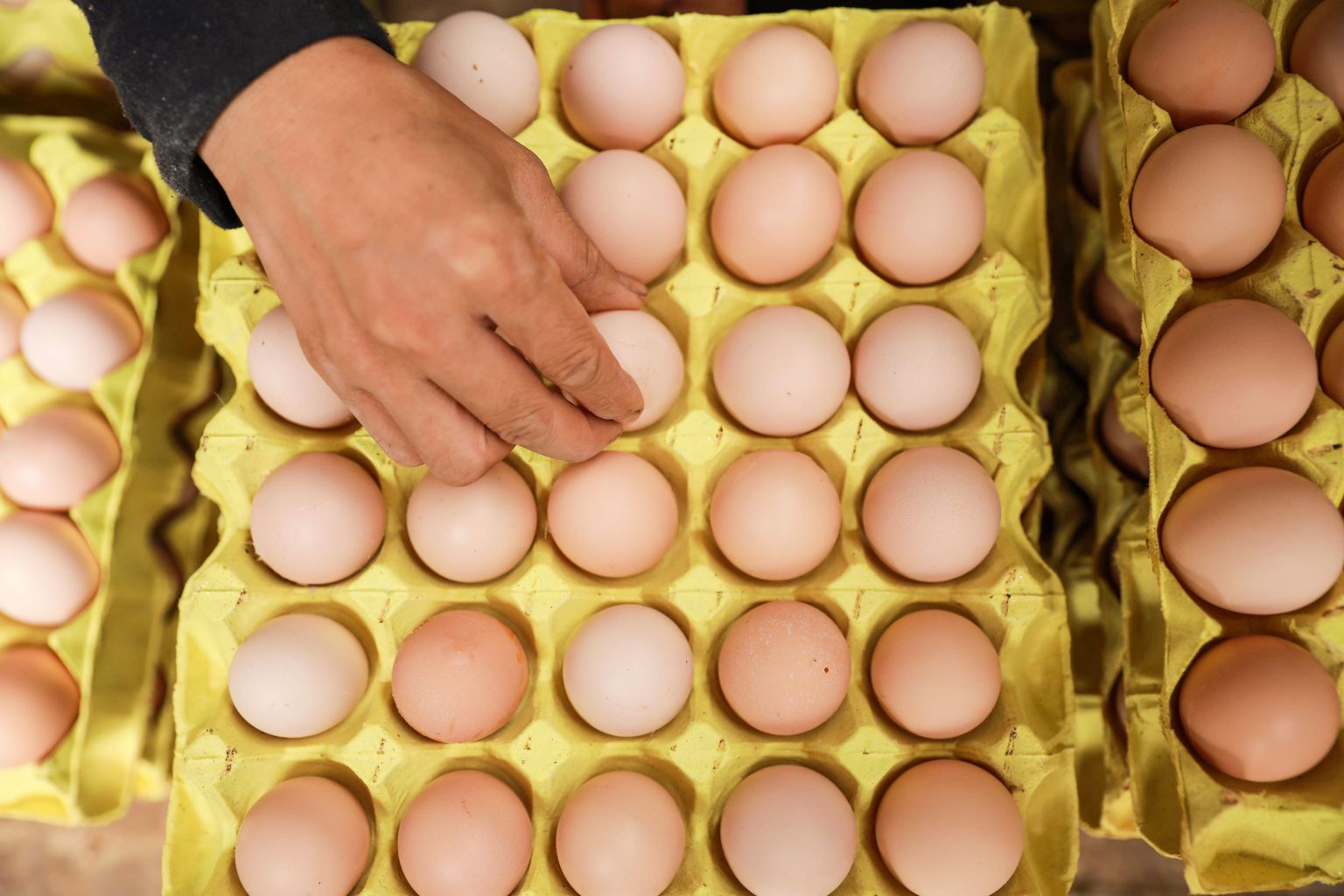Malaysia on the hunt for an egg cartel after prices jump
Sign up now: Get insights on the biggest stories in Malaysia

Malaysia's egg supply fell about 3 per cent in December 2018 after a few farms in the north of the country were investigated for avian flu, according to the Veterinary Services Department.
PHOTO: AFP
KUALA LUMPUR (BLOOMBERG) - An almost 30 per cent jump in egg prices in just one week has prompted a Malaysian government investigation into potential collusion.
The cost of a crate of 10 eggs in the administrative capital of Putrajaya climbed to as high as RM5.11 (S$1.68) at the start of December, from RM3.98 a week earlier, according to the Domestic Trade and Consumer Affairs Ministry.
Average prices in Malaysia are currently about RM4 for 10.
The ministry is looking across the supply chain to determine whether collusion or cartels artificially boosted prices, its minister Saifuddin Nasution Ismail said in response to questions from Bloomberg.
"If egg prices remain high or continue to rise, Malaysian consumers will be adversely affected," Datuk Seri Saifuddin said, adding eggs are also exported to places including Singapore, Hong Kong, the Maldives and Mauritius.
"If egg prices continue to increase or remain high, we might examine whether it's necessary to continue exporting eggs at the current volume."
Malaysia's egg supply fell about 3 per cent in December after a few farms in the north of the country were investigated for avian flu, according to the Veterinary Services Department.
Laboratory tests later revealed that those farms were free from the avian influenza virus, it said.
A weaker currency has also made imported feed more expensive, according to the department.
The supply drop was likely caused by small farmers closing after being unable to cope with low prices coupled with the cost of chicken feed, said Jeffrey Ng, president of the Federation of Livestock Farmers' Associations of Malaysia.
Farmers have been selling below output costs for the past two years, he said.
The ministry will roll out controls to cap the price of eggs for five days during the Christmas holiday to protect consumers at a time of high demand, Mr Saifuddin said.
A ceiling price will be set after discussions between producers, the Ministry and Department of Veterinary Services.
About 73 per cent of Singapore's eggs are from Malaysia, according to Singapore's Agri-Food and Veterinary Authority, with around a quarter produced in Singapore.
AVA said supplies remain unaffected for now, and there are plans in place to acquire eggs from elsewhere if need be.
Meanwhile, the Malaysian government has said it will prohibit the export of four species of wild-caught fish and shrimp to meet the shortage in the market during the monsoon and festive seasons.
The fish species kembung (mackerel), selar (trevally), pelaling (Indian mackerel) and bawal (pomfret), as well as shrimp, will be prohibited from Jan 1 to Feb 28 next year, reported Bernama.


